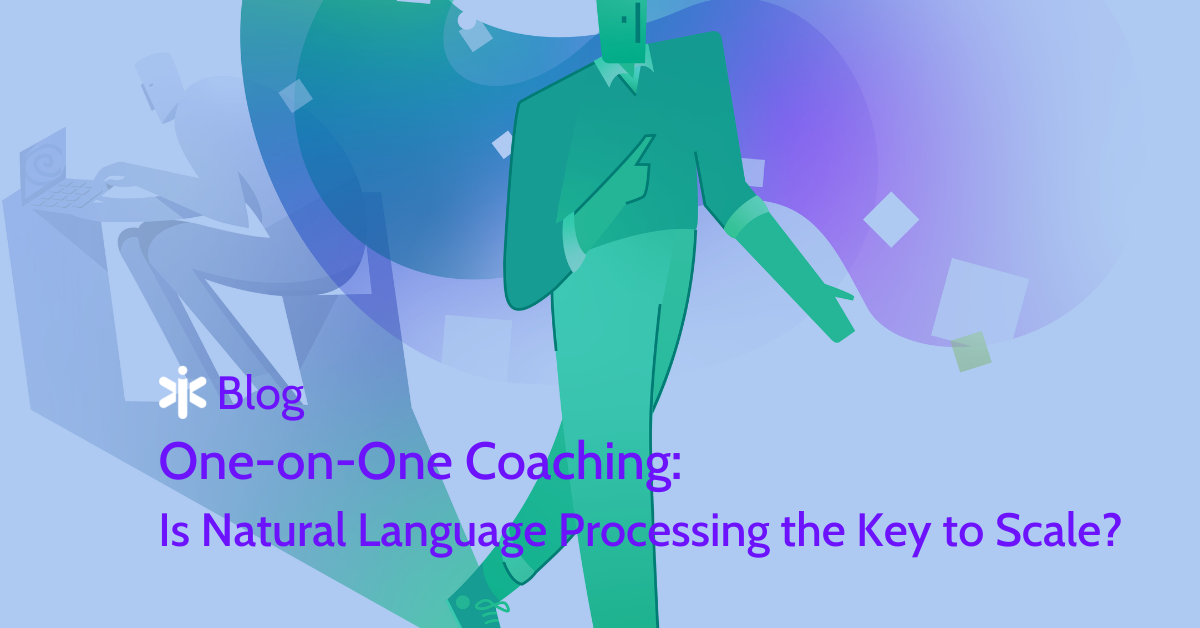Interpersonal skills are foundational to career advancement. Unfortunately, improving one’s interpersonal skills is challenging, as it requires not only ample opportunities to practice the skills in a safe environment, but also a trained coach who can watch the practice sessions and provide constructive, insightful, and actionable feedback.
For most professionals, hiring a personal coach to provide in-person training is cost prohibitive. Although companies can reduce the high cost of in-person coaching by offering virtual sessions, prices for one-on-one consulting time are high. And while new global platforms make human coaches available gig-economy style, a good coach is still expensive and there simply aren’t enough skilled coaches for all aspiring professionals.
Could a branch of artificial intelligence known as natural language processing be a viable alternative?
You can’t manage what you can’t measure
Answering the previous question requires understanding what an interpersonal skills coach does. Essentially, this person has two main responsibilities: analyze their client’s skills and provide meaningful, personalized feedback that enables steady improvement. For any solution to scale, it must perform both of these tasks effectively and efficiently.
A good coach makes analyzing how a person performs look easy; however, it’s a lot harder than it appears. It starts with being able to break down the interaction into its component parts so that each part can be “measured.” Consider the manager giving feedback to an employee about their performance: what exactly is the manager doing? They’re speaking, of course, but what else? They have a point of view on what’s important and what isn’t. They’re talking about what the employee did and what occurred as a result. They might explain why it matters. And they should be clear about future expectations.
When analyzing this manager’s interpersonal skills during this interaction with the employee, a good coach would look for all of these things, while tracking the words the manager chose and the overall tone of the conversation. That’s a pretty high bar. Any automated solution would need to understand what someone is saying and how they’re saying it. This is where natural language processing can help.
What is natural language processing?
Natural language processing (NLP) is an area of artificial intelligence that relates to how computers process and analyze human language in the form of text or voice data. This concept has been around for more than half a century but has grown rapidly in recent years. What makes NPL so remarkable is that it enables computers to understand sentiment and intent.
You probably use NLP in your everyday life without realizing it. One of the most basic uses of NLP is for email filters. The spam filter in your email account recognizes certain words and phrases that act as a signal to send that email to your Junk or Spam folder. As NLP has advanced, so have these filters. Google introduced a new classification of email filing – primary, social, and promotions – that organizes a user’s inbox and allows them to find emails that may be more relevant to them. It also recommends replies, allowing users to respond to their emails with ease.
How NLP can advance interpersonal skills coaching
Recent advances in NLP make it possible for systems to analyze speech in ways that were impossible just a few years ago. By combining machine learning techniques to decipher spoken language with symbolic logic to model discourse, an NLP system can determine whether someone is taking the right approach to a situation. We all have different ways of saying something with the same or similar meaning or sentiment behind it. Because NLP can use context to identify appropriate or inappropriate responses, it fulfills a core requirement of a scalable coaching tool.
Advancements in NLP allow computers to analyze both what is said and how it is said. This is critical to interpersonal skills coaching, because without a good analysis, the learner won’t receive feedback that is meaningful.
Equally critical is that feedback for the learner be specific and actionable. Next time, we’ll look at how NLP can provide feedback that is both meaningful and personalized.
